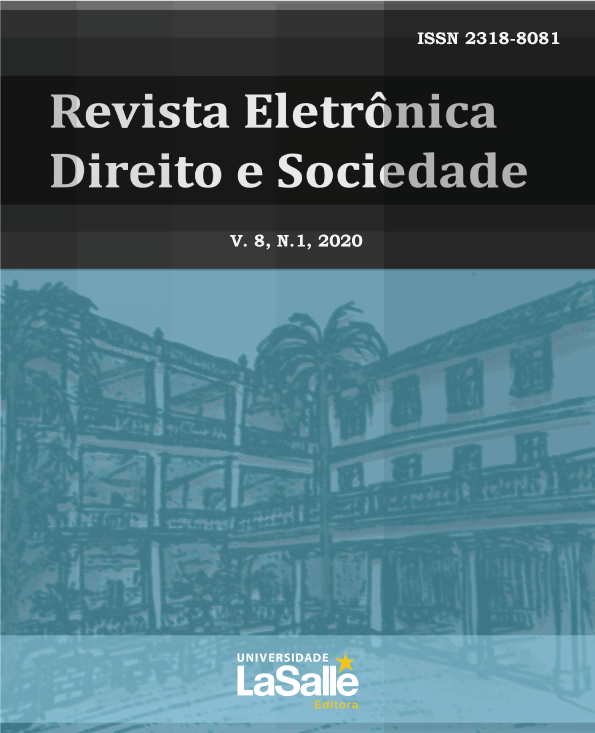Is the period of provisional hospitalization extendable? An analysis of the decisions of the Court of Justice of the state of Rio Grande do Sul in the year 2018
DOI:
https://doi.org/10.18316/redes.v8i1.5704Keywords:
Internação Provisória, Decisões Judiciais, Proteção Integral, Criminologia Crítica.Abstract
O presente artigo analisou dezenove decisões proferidas pelo Tribunal de Justiça do Estado do Rio Grande do Sul, no período de janeiro a outubro de 2018, partindo de um método indutivo, para verificar como estava se decidindo sobre a possibilidade da prorrogação do prazo de internação provisória, vez que a legislação atual estabelece ser improrrogável. A pesquisa também tinha como objetivo saber quais seriam os atos infracionais que possivelmente autorizariam sua prorrogação, além de selecionar os argumentos jurídicos e subjetivos/discricionários utilizados pelo Tribunal. O marco teórico da pesquisa se concentrou na análise da legislação vigente, voltada para a teoria da proteção integral, a partir de um viés criminológico crítico, com um método predominantemente dedutivo. O resultado obtido demonstra divergência entre duas Câmaras Cíveis do Tribunal, sendo que uma delas sempre autorizou a prorrogação, independentemente do ato infracional praticado, além de ter utilizado um modelo padrão de decisão, com fundamentos majoritariamente discricionários. Por sua vez, a outra Câmara somente em uma das decisões autorizou a prorrogação, porém, em todas elas deixou aberta uma margem para a prorrogação em casos excepcionais, sem, contudo, definir quais casos seriam esses. Como conclusão, a pesquisa demonstrou que embora a sociedade brasileira atual esteja vivendo em uma era pós-democrática, onde cada vez mais os direitos e garantias fundamentais não serão efetivados, e todos órgãos estarem comprometidos com o capital, não pode ser descartado que o futuro da legislação tende a trazer muitos benefícios para essa área que durante muito tempo foi subalternizada e marginalizada.Downloads
Published
Issue
Section
License
Authors who submit their manuscripts for publication in the “REDES” Magazine agree to the following terms:
The authors claim to be aware that they retain copyright by giving “REDES” the right to publish.
The authors declare to be aware that the work submitted will be licensed under the Creative Commons Non-Commercial Attribution License which allows article sharing with acknowledgment of authorship and publication in this journal.
The authors declare to be aware that by virtue of the articles published in this journal have free public access.
The authors declare, under the penalty of the law, that the text is unpublished and original and that they are aware that plagiarism has been identified, plagiarized authors will be informed - willingly, to take legal action in the civil and criminal sphere - and, plagiarists will have their access to the magazine blocked.
The authors state that - in case of co-authoring - all contributed significantly to the research.
Authors are obliged to provide retractions and (or) corrections of errors in case of detection.
The authors are obliged not to publish the text submitted to “REDES” in another electronic journal (or not).
The Electronic Journal Law and Society - REDES - is licensed under a Creative Commons License. Attribution-NonCommercial 4.0 International.Based on work available at "http://revistas.unilasalle.edu.br/index.php/redes/about/submissions#copyrightNotice".
Permissions in addition to those granted under this license may be available at http://creativecommons.org/.

